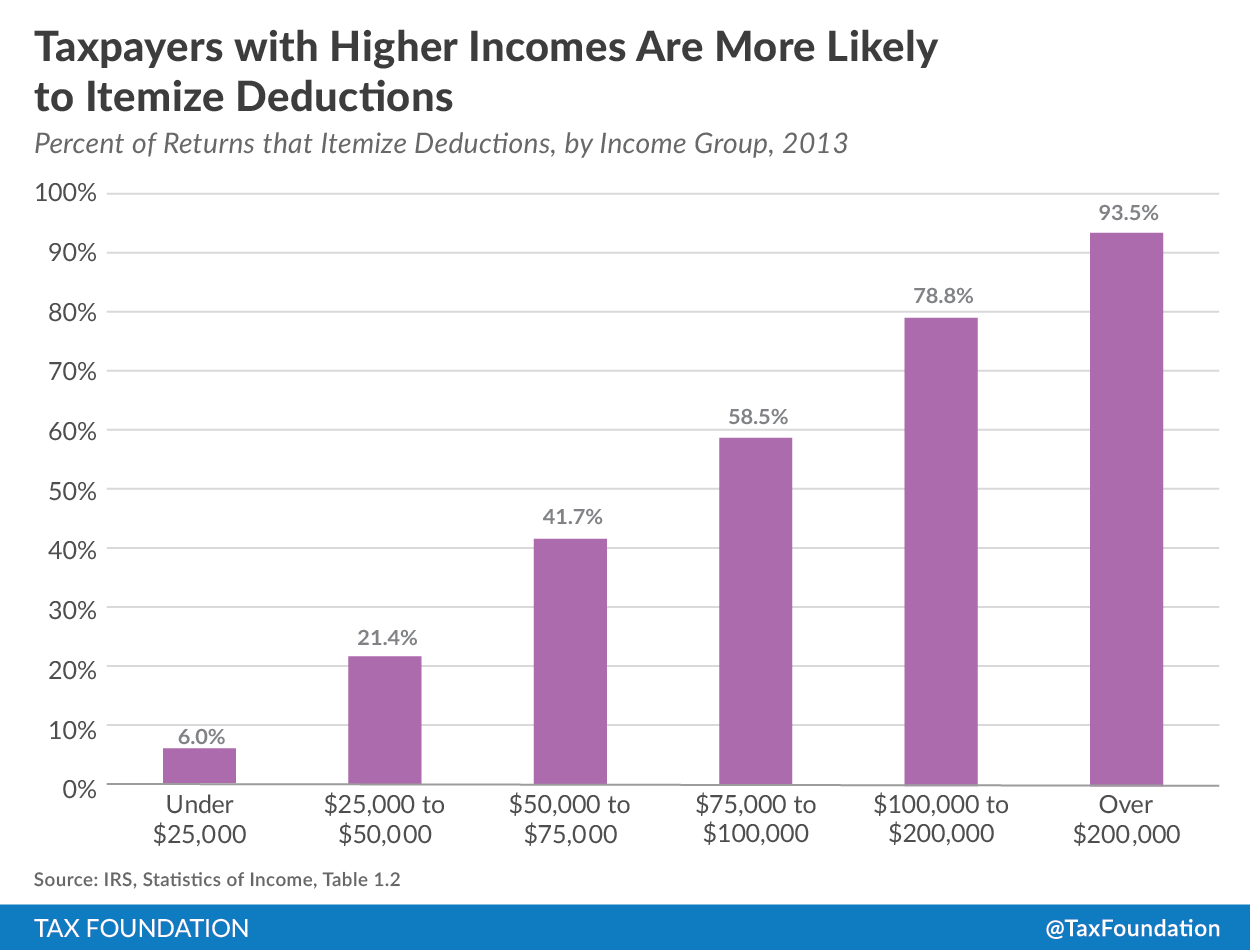As tax filing season gets underway, many taxpayers are figuring out whether to take the standard deduction or to itemize. How many Americans choose each option?
According to the most recent IRS data, for the 2013 taxA tax is a mandatory payment or charge collected by local, state, and national governments from individuals or businesses to cover the costs of general government services, goods, and activities. year,
- 30.1 percent of households chose to itemize their deductions (44 million returns).
- 68.5 percent of households chose to take the standard deductionThe standard deduction reduces a taxpayer’s taxable income by a set amount determined by the government. It was nearly doubled for all classes of filers by the 2017 Tax Cuts and Jobs Act (TCJA) as an incentive for taxpayers not to itemize deductions when filing their federal income taxes. (101 million returns).
- 1.6 percent of households had zero or negative adjusted gross incomeFor individuals, gross income is the total pre-tax earnings from wages, tips, investments, interest, and other forms of income and is also referred to as “gross pay.” For businesses, gross income is total revenue minus cost of goods sold and is also known as “gross profit” or “gross margin.” , and were unable to take any deductions. (2 million returns)
These statistics show that most American taxpayers choose to take the standard deduction. However, this is not the case for higher-income taxpayers. When it comes to households with incomes over $75,000, a significant majority itemizes deductions:
The IRS data shows a clear trend: the higher a household’s income, the more likely it is to itemize deductions. Only 6.0 percent of tax returns with under $25,000 in income chose to itemize deductions in 2013. On the flip side, 93.5 percent of tax returns with over $200,000 in income were itemizers.
It’s not surprising that high-income households are more likely to itemize deductions. Households with high incomes are likely to pay more in state and local taxes, take out larger mortgages, and have more disposable income to donate to charity – each of which can lead to a sizeable deduction for households that itemize. Furthermore, deductions are more valuable for households that fall into higher tax brackets, giving high-income households a stronger incentive to keep the necessary records to itemize.
While the federal tax code generally imposes a much higher burden on high-income households, itemized deductions are an area of the tax code that mostly benefits the wealthy. As a result, many recent tax reform proposals have sought to limit itemized deductions or eliminate them completely.
Stay informed on the tax policies impacting you.
Subscribe to get insights from our trusted experts delivered straight to your inbox.
Subscribe